Keynote Speakers
We are very pleased to have acquired the services of an excellent selection of keynote speakers for Covid-19 Challenge. The speakers and the titles of their talks are shown below.
Professor Rajkumar Buyya
University of Melbourne, AustraliaNeoteric Frontiers in Cloud and Edge Computing
More details ...
Associate Professor Bill Kapralos
Ontario Tech University, CanadaThe Gamified Educational Network Learning Management System to Facilitate Engaging Cooperative Remote Learning
More details ...
Professor George Karani & Dr John R Littlewood
Cardiff Metropolitan University, UKAddressing Challenges and Opportunities through Partnership, to Mitigate against Infection, Pandemics, Climate Change Resulting in Increased Human Resilience and Quality of Life
More details ...
Professor Lyudmila Mihaylova
University of Sheffield, Sheffield, UKTrustworthy Machine Learning Methods for Smart Cities with Increased Resilience
More details ...
Professor Edward Szczerbicki
The University of Newcastle, AustraliaIntelligence Augmentation with Decisional DNA and idream.technology
More details ...
Professor Rajkumar Buyya
University of Melbourne, AustraliaNeoteric Frontiers in Cloud and Edge Computing
Abstract:
Computing is being transformed to a model consisting of services that are delivered in a manner similar to utilities such as water, electricity, gas, and telephony. In such a model, users access services based on their requirements without regard to where the services are hosted or how they are delivered. Cloud computing paradigm has turned this vision of "computing utilities" into a reality. It offers infrastructure, platform, and software as services, which are made available to consumers as subscription-oriented services. Cloud application platforms need to offer (1) APIs and tools for rapid creation of elastic applications and (2) a runtime system for deployment of applications on geographically distributed computing infrastructure in a seamless manner.
The Internet of Things (IoT) paradigm enables seamless integration of cyber-and-physical worlds and opening up opportunities for creating new class of applications for domains such as smart cities and smart healthcare. The emerging Fog/Edge computing paradigm is extends Cloud computing model to edge resources for latency sensitive IoT applications with a seamless integration of network-wide resources all the way from edge to the Cloud.
This keynote presentation will cover (a) 21st century vision of computing and identifies various IT paradigms promising to deliver the vision of computing utilities; (b) innovative architecture for creating elastic Clouds integrating edge resources and managed Clouds, (c) Aneka 5G, a Cloud Application Platform, for rapid development of Cloud/Big Data applications and their deployment on private/public Clouds with resource provisioning driven by SLAs, (d) a novel FogBus software framework with Blockchain-based data-integrity management for facilitating end-to-end IoT-Fog/Edge-Cloud integration for execution of sensitive IoT applications, (e) experimental results on deploying Cloud and Big Data/ IoT applications in engineering, and health care (e.g., COVID-19), deep learning/Artificial intelligence (AI), satellite image processing, natural language processing (mining COVID-19 research literature for new insights) and smart cities on elastic Clouds; and (f) directions for delivering our 21st century vision along with pathways for future research in Cloud and Edge/Fog computing.
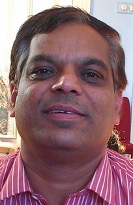
Biography:
Dr. Rajkumar Buyya is a Redmond Barry Distinguished Professor and Director of the Cloud Computing and Distributed Systems (CLOUDS) Laboratory at the University of Melbourne, Australia. He is also serving as the founding CEO of Manjrasoft, a spin-off company of the University, commercializing its innovations in Cloud Computing. He has authored over 850 publications and seven text books including "Mastering Cloud Computing" published by McGraw Hill, China Machine Press, and Morgan Kaufmann for Indian, Chinese and international markets respectively. Dr. Buyya is one of the highly cited authors in computer science and software engineering worldwide (h-index=138, g-index=307, 104,500+ citations). "A Scientometric Analysis of Cloud Computing Literature" by German scientists ranked Dr. Buyya as the World's Top-Cited (#1) Author and the World's Most-Productive (#1) Author in Cloud Computing. Dr. Buyya is recognised as Web of Science "Highly Cited Researcher" for five consecutive years since 2016, IEEE Fellow, Scopus Researcher of the Year 2017 with Excellence in Innovative Research Award by Elsevier, and the "Best of the World", in Computing Systems field, by The Australian 2019 Research Review.
Software technologies for Grid, Cloud, and Fog computing developed under Dr.Buyya's leadership have gained rapid acceptance and are in use at several academic institutions and commercial enterprises in 50 countries around the world. Dr. Buyya has led the establishment and development of key community activities, including serving as foundation Chair of the IEEE Technical Committee on Scalable Computing and five IEEE/ACM conferences. These contributions and international research leadership of Dr. Buyya are recognized through the award of "2009 IEEE Medal for Excellence in Scalable Computing" from the IEEE Computer Society TCSC. Manjrasoft's Aneka Cloud technology developed under his leadership has received "Frost & Sullivan New Product Innovation Award". He served as founding Editor-in-Chief of the IEEE Transactions on Cloud Computing. He is currently serving as Editor-in-Chief of Software: Practice and Experience, a long standing journal in the field established ~50 years ago. For further information on Dr. Buyya, please visit his cyberhome: www.buyya.com
Associate Professor Bill Kapralos
Ontario Tech University, CanadaThe Gamified Educational Network Learning Management System to Facilitate Engaging Cooperative Remote Learning
Abstract:
Since the onset of the CODVID-19 pandemic and the resulting shutdowns and work from home orders, medical education has been disrupted, and presents practical and logistical challenges and concerns particularly with respect to laboratory training (and psychomotor skills development in particular) which cannot always be recreated online/remotely. To help overcome these challenges, we are employing the Gamified Educational Network (GEN) Learning Management System (LMS) as a tool to promote psychomotor skills development in a cooperative online learning environment amongst a community comprised of trainees ("peers"), experts, and educators. More specifically, medical trainees can record themselves as they practice a procedure using a physical simulator (e.g., "task trainer"), upload their resulting video to the GEN LMS where a discussion ensues. Through the innovative use of game elements, the GEN LMS engages and motivates students to use and take advantage of the platform, and participate in this discussion/debriefing process ultimately promoting collaborative learning that includes peer-to-peer as well as expert-based feedback. This presentation will begin with an overview of the GEN LMS followed by a description of its use in a variety of medical education applications.
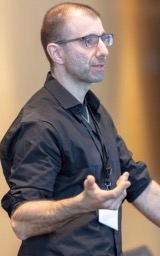
Biography:
Bill Kapralos is an Associate Professor within the maxSIMhealth Laboratory at Ontario Tech University. He is also the Technical Lead of the Collaborative Human Immersive Interaction Laboratory (CHISIL), Sunnybrook Health Sciences Centre in Toronto. His current research interests include: immersive technologies, serious gaming, multi-modal virtual environments/simulation/reality, the perception of auditory events, and 3D (spatial) sound generation. He was recently awarded a Greek Diaspora Fellowship (sponsored by the Stavros Niarchos Foundation). He is a past recipient of an Australian Government 2018 Endeavour Executive Fellowship to conduct research in Australia, a past recipient of a Natural Sciences and Engineering Research Council of Canada (NSERC) and Japan Society for the Promotion of Science (JSPS) Fellowship, a past recipient of an IBM CAS Faculty Award, and a past co-recipient of a Google Faculty Award.
Professor George Karani & Dr John R Littlewood
Cardiff Metropolitan University, UKAddressing Challenges and Opportunities through Partnership, to Mitigate against Infection, Pandemics, Climate Change Resulting in Increased Human Resilience and Quality of Life
Abstract:
There is epidemiological evidence that human exposure to particulate pollution increases mortality and morbidity from cardiovascular and respiratory disease. Recent studies have demonstrated that long term exposure to particulate air pollution is associated with dementia and type-2 diabetes mellitus. Generally, particle size, shape, density, chemical composition, and mass have been identified as key characteristics for health and environmental studies.
The authors use case studies from projects completed in the UK, Middle East, Africa, and Canada since the mid 1990's on waste management; water recycling; economic and poverty impacts upon diseases, air quality and thermal comfort; community resilience, health and working environment; and inadequate workmanship decreasing physical safety.
The studies have shown that Addressing challenges and opportunities through Partnership to Improve quality of life by collaborating with appropriate stakeholders, API, is a validated approach to develop technologies to inform policy. API is thus an effective way to mitigate against infection, pandemics, climate change and increase human resilience.
Biographies:
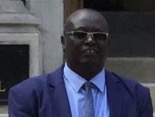
Prof Karani is Professor of Environmental Health, Centre for Occupational & Environmental Public Health, Cardiff Metropolitan University School of Sport and Health Sciences. Prof Karani leads the Environmental Public Health to Improve Quality of Life Research Group (EPUQOG) research group. The motto of the group is to Address Challenges and Opportunities through Partnership to improve quality of life by Involvement of all appropriate stakeholders, (API). The research group projects are on Pollution and Health, Poverty Related diseases, Sustainable Development Goals. George's team work with local, regional and international research partners on joint grant applications, publications, postgraduate research supervision, seminars, conferences and innovation activities. We collaborate with Public Health Wales, Cardiff and the Vale & Aneurin University Health Boards, Universities of Nottingham & South Wales, Community groups and Industrial partners. Our current overseas partners based in Cameroon, Ghana, Kenya, Nigeria, Oman, Qatar, Rwanda, United Arab Emirates and Uganda. Prof Karani has been a consultant to the World Bank, World Health Organization (WHO) and the World Meteorological Organization (WMO). He has been appointed to several government advisory committees. He has served as Lead resource person at various training, workshop and seminar meetings in Africa, Europe, and the Middle East.

Dr. John Littlewood graduated in Building Surveying, holds a Ph.D. in Building Performance Assessment for Operational Energy dwellings, and is a multi-disciplinary Chartered Building Engineer. He is Founder (2009) and been Head of the Sustainable and Resilient Built Environment Research Group (SuRBe) at Cardiff Metropolitan University (UK). John's innovative research has been in collaboration and industry focused since 1996. His specialisms related to improving quality of life for people and wildlife, reducing carbon emissions from energy use and so mitigating climate change include: assessing and testing construction fabric workmanship weaknesses that impact upon fire performance, energy use for heating and thermal comfort so human fuel poverty and physical health - in existing and new dwellings; optimising offsite manufacturing and construction of modern methods of construction systems for nearly to zero operational carbon buildings, using natural and renewable materials; and low impact and organic green infrastructure projects to improve harvest of food and flowers, by protecting and enhancing biodiversity and the natural environment. In addition, John has considerable experience in establishing research centres and collaborations, at local, national, and international levels, and leads on Professional Doctorates in Engineering and Sustainable Built Environment. He has co-authored 150+ peer-reviewed publications, been General Chair of KES International's Sustainability in Energy & Buildings International conference in 2014, and since 2017, and is Co-Editor of Springer's Advances in Sustainability Science and Technology Book series.
Professor Lyudmila Mihaylova
University of Sheffield, Sheffield, UKTrustworthy Machine Learning Methods for Smart Cities with Increased Resilience
Abstract:
A significant number of the world population lives in cities and it is predicted that this number will increase to 70 percent in the next five years. This poses a number of challenges - for mobility, planning, especially linked with the development of autonomous and connected vehicles, safety critical systems, deployment of sensors and quick decision making. In the era of data - volume, velocity, veracity and variety are significant challenges and the data volume is beyond the capacity that a human could process. This talk will present recently developed machine learning methods able to deal with data challenges and at the same time providing trust assessment to the developed approaches. Could we trust the developed methods and how much are they reliable? These methods are part of solutions that can increase the resilience of our cities and can help us to deal with different environments.
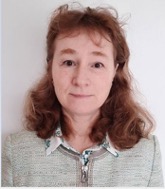
Biography:
Lyudmila Mihaylova, PhD is a Professor of Signal Processing and Control in the Department of Automatic Control and Systems Engineering at the University of Sheffield, Sheffield, United Kingdom. Her research interests are in the areas of autonomous systems with applications to cities, autonomous and assisted living systems. She has expertise in the areas of machine learning, intelligent sensing and sensor data fusion. She won the Tammy Blair best award from the International Conference of Information Fusion 2017, best paper awards from the IEEE DESSERT'2019, 17th IEEE SPA'2013 Conference and IEEE Sensor Data Fusion Workshop, 2013 and others. Prof. Mihaylova is on the Board of Directors of the International Society of Information Fusion (ISIF) and was the ISIF President in the period 2016-2018. She has given a number of talks and tutorials, a including an invited talk in Harbin (Intelligent Navigation and Advanced Information Technology Workshop'2020), plenary talk in Cairo (JIC Smart Cities'2019), NATO SET- 262 AI 2018 (Hungary), Fusion 2017 (Xi'an, China), plenary talks for the IEEE Sensor Data Fusion 2015 (Germany), invited talks at IPAMI Traffic Workshop 2016 (USA) and many others. She was the general vice-chair for the International Conference on Information Fusion 2018 (Cambridge, UK), of the IET Data Fusion & Target Tracking 2014 and 2012 Conferences, publications chair for ICASSP 2019 (Brighton, UK), program chair of Fusion 2020 and others.
Professor Edward Szczerbicki
The University of Newcastle, AustraliaIntelligence Augmentation with Decisional DNA and idream.technology
Abstract:
The rapidly evolving Cognitive Society of the 21st Century needs increasingly smarter and abler decision-making enhancement to make this evolvement sustainable in the post pandemic age. We address this global challenge by proposing intelligence augmentation with Decisional DNA, which could provide decision-makers with the tools to choose the best outcomes for a Cognitive Society that would promote sustainability, wellbeing, and security to individuals and populations. In nature, deoxyribonucleic acid (DNA) contains the genetic instructions used in the development and functioning of all known living organisms. The idea behind our research is to develop an artificial system, an architecture that would support discovering, adding, storing, improving and sharing information and knowledge among agents and organisations through experience. We propose a novel Knowledge Representation (KR) approach in which experiential knowledge is represented by Set of Experience (SOE), and is carried into the future by Decisional DNA (DDNA). This research has enormous and exciting potential of opening entirely new and so far not conceptually conceived scientific horizons.
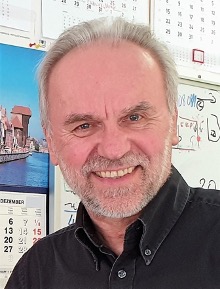
Biography:
Professor E Szczerbicki has had very extensive experience in the area of intelligent systems development over an uninterrupted 40-year period, 30 years of which he spent in the topinformation science research centres in the USA, UK, Australia, and Germany. In this area he contributed to the understanding of information and knowledge management/engineering in complex systems operating in changing environments characterised by informational uncertainties. He has published over 300 refereed papers which attracted more than 3000 citations over the last 20 years (ISI Web of Science; Scopus). His academic experience includes ongoing positions with Gdansk University of Technology, Gdansk, Poland; Strathclyde University, Glasgow, Scotland; The University of Iowa, Iowa City, USA; University of California, Berkeley, USA; and The University of Newcastle, Newcastle Australia.


